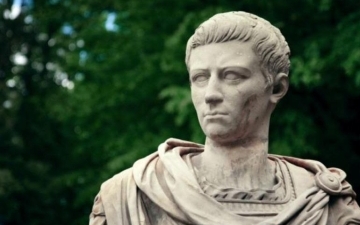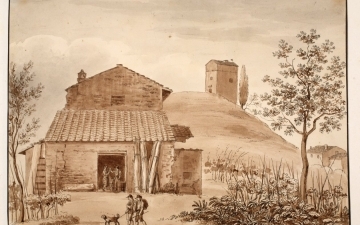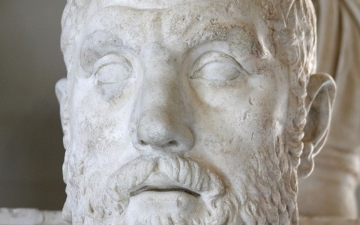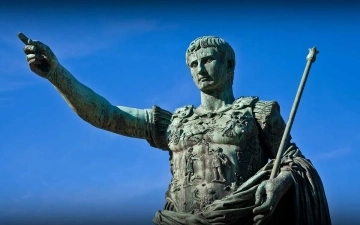Elagabalus: The Controversial Reign of Rome’s Youngest Emperor and His Religious Revolution

Elagabalus, born Varius Avitus Bassianus, is one of the most enigmatic and controversial figures in Roman history. Elevated to the imperial throne at the tender age of fourteen, his reign was marked by extravagance, scandal, and a radical religious transformation.
His rise to power was as dramatic as his subsequent reign. A distant cousin of Caracalla, Elagabalus was proclaimed emperor by the Praetorian Guard following the assassination of Macrinus. His mother, Julia Soaemias, and grandmother, Julia Maesa, were instrumental in securing his position.
Elagabalus' reign is synonymous with religious innovation, or perhaps more accurately, revolution. A devout worshipper of the Syrian sun god Elagabal, he introduced the cult to Rome, replacing traditional Roman deities with his own. The emperor constructed a lavish temple to the god on the Palatine Hill, the heart of the Roman world. The centerpiece of this temple was a large black stone, believed to be a meteorite, which was said to be the physical manifestation of the deity.
Elagabalus' religious zeal extended beyond mere worship. He insisted that Roman senators and high-ranking officials participate in the cult's rituals, a blatant disregard for traditional Roman values. His personal conduct, marked by effeminate behavior and extravagant tastes, further alienated the Roman elite.
Beyond his religious fanaticism, Elagabalus was known for his lavish lifestyle. He spent exorbitant sums on personal luxuries, including exotic foods, rare animals, and lavish banquets. His sexual orientation and behavior were also a subject of much speculation and condemnation.
However, it is essential to approach the historical accounts of Elagabalus with caution. Much of the information about his reign comes from hostile sources, notably the historian Cassius Dio. These accounts, while colorful and dramatic, may exaggerate the emperor's excesses and eccentricities.
Ultimately, Elagabalus' reign proved to be short-lived. His unpopularity among the Senate and the Praetorian Guard grew, and he was assassinated in 222 AD. His cousin, Alexander Severus, succeeded him, ushering in a period of relative stability.
Elagabalus remains a complex and controversial figure. His reign was a period of radical experimentation, a departure from the traditional norms of Roman society. While his religious innovations were ultimately unsuccessful, they offer a fascinating glimpse into the religious and cultural landscape of the Roman Empire in the 3rd century.
Related Posts
From Scrolls to Stones: How Museums Document Biblical History
The Bible is more than just a collection of sacred texts—it’s a living document that has shaped centuries of religious, cultural, and historical movements. For thousands of years, it has been passed down through oral traditions, written manuscripts, and monumental inscriptions. The story of how these texts came to be,...
Read MoreCaligula: Madness and Infamy in the Roman Empire
The name Caligula is synonymous with madness and infamy in the annals of Roman history. Gaius Julius Caesar Augustus Germanicus, known as Caligula, was the third Roman Emperor, and his tumultuous reign left an indelible mark of cruelty, debauchery, and tyranny. In this article, we delve into the life and...
Read MoreElagabalus: The Controversial Reign of Rome’s Youngest Emperor and His Religious Revolution
Elagabalus, born Varius Avitus Bassianus, is one of the most enigmatic and controversial figures in Roman history. Elevated to the imperial throne at the tender age of fourteen, his reign was marked by extravagance, scandal, and a radical religious transformation. His rise to power was as dramatic as his subsequent reign....
Read MoreSeverus Alexander: The Emperor Who Faced Down Crisis and Attempted to Restore Order
Severus Alexander, often overshadowed by the more flamboyant and controversial emperors who preceded him, was a ruler who ascended to the imperial throne at a time of profound crisis. His reign, while ultimately brief, was marked by a determined effort to restore order and stability to the Roman Empire. Grandson of...
Read MoreMacrinus: The First Equestrian Emperor and His Brief Attempt to Stabilize Rome
Opilius Macrinus, an unexpected figure in the annals of Roman history, ascended to the imperial throne in 217 AD after the assassination of Caracalla. Unlike his predecessors, who hailed from the senatorial aristocracy, Macrinus was an eques, a member of the equestrian order, a social class traditionally associated with business...
Read MoreThe Rise and Fall of Julius Caesar: A Tale of Ambition and Betrayal
Julius Caesar, a name that echoes through the corridors of history as one of ancient Rome's most prominent and controversial figures. His life, marked by ambition, military genius, and ultimate betrayal, is a tale that continues to captivate and intrigue. The Ascent of Ambition Julius Caesar was born in 100 BCE into...
Read More






















